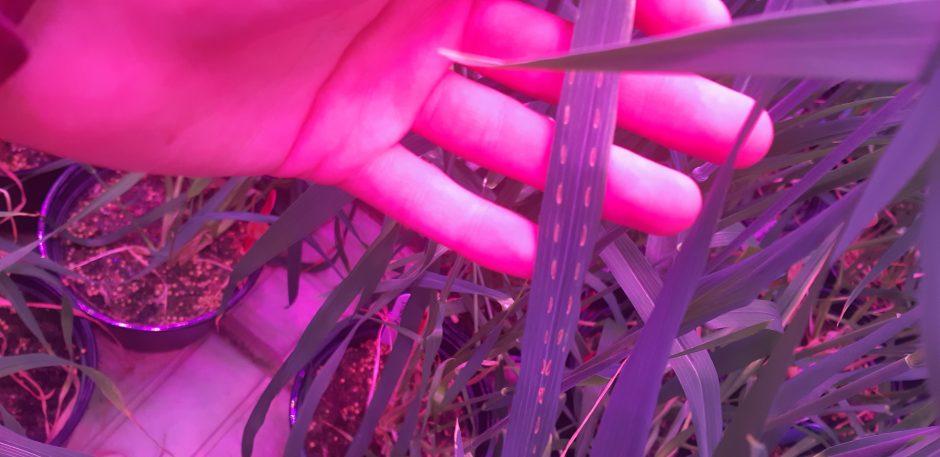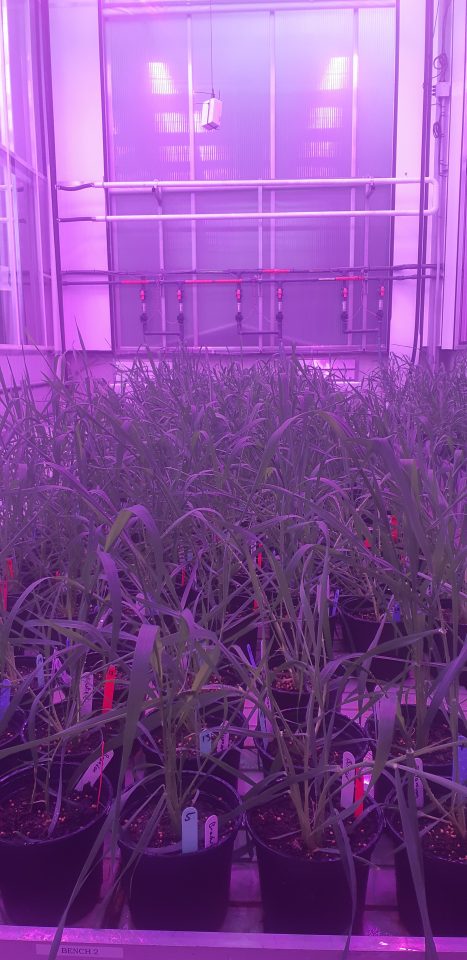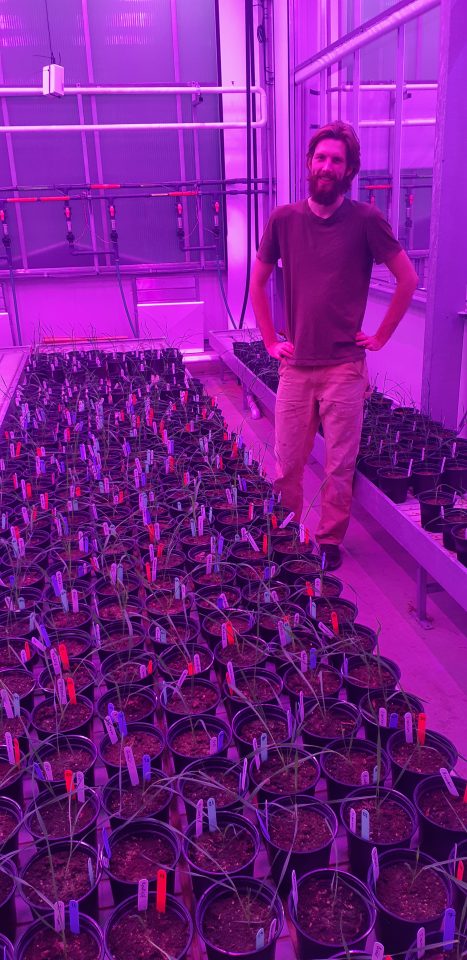Project lead: Isaac Peetoom Heida
Silicon has recently been recognized as having a variety of positive effects on plant growth and stress tolerance. Silicon supplementation has led to increased drought and heavy metal tolerance, increased biomass production, and reduced susceptibility to herbivory and fungal pathogens. Herbivory events can induce a rapid uptake of silicon, particularly in grass species. This silicon goes on to improve the plant’s resistance to herbivores, but also may serve to protect the plant from fungal pathogens.
Silicon uptake is controlled by a series of transporters in the root and vascular system in plants. To date, we still have a poor understanding of what genetic factors contribute to determining the amount of silicon a given plant uptakes from their environment.
In this research project, we are investigating the effect of herbivory to provide lasting resistance to fungal infection in wheat, mediated by silicon uptake and deposition. Additionally, we will be using a panel of 151 genotypes of a wheat ancestor (Aegilops tauschii) to look for regions of the genome that influence the total amount of silicon accumulated over a growing season.
This research will help us better understand what controls silicon uptake, as well as the ecological and agronomic implications of silicon uptake in a major crop plant.


